|
The Orient has always been a facination to the west. Ancient trading routes soon became pathways for Imperial expansion, that exposed places and people to each other, the "mysterious other." Exposure to the East led to an exploration into how the "other" thinks, behaves, believes. Orientalism, Indology, and Asiatic Studies became the forbearers of archeology, anthropology, and linguistics: the study of ancient places, people and language. Likewise, scientific study of plants, animals, and lands spawned a wide range of theories such as early genetic determinism and evolution. The Asiatic Society in Calcutta, and eventually in Bombay and then Delhi was established by the English to capture the studies conducted in India particularly, but throughout Asia. Collections hold ancient documents in Tibetan and Chinese as well as Sanskrit and Persian. Not everything went to England after the British left India. And the fascination with everything Indian was shared not only by the West, but by Indians from all backgrounds. Contributions to the Journal, Archives, and Library have been collected over the centuries from a variety of sources. Today we went to see the Asiatic Society in Kolkata. I went to seek what I could learn of my great great grandfather, Ferdinand Hahn, knowing he had published some articles. Indeed I found the books he had written of the Kurukh language. Three books, first editions, each in delicate condition after 100 years in the moldy and dusty archives. I want to share the process I had to go through to find these three books, and also three articles, all published between 1900 and 1904. , but not to poke fun at the Indian way of doing things, nor to romanticize it. Just to simply state what one must patiently endure to accomplish a simple task. At the very least my librarian friends may appreciate this story. Upon entering the building, which is the "new" building that was built concealing from the street the original building, we were asked to sign in. I went with my cousin and sister-in-law. I asked about the archives so they sent us to floor 2 where there was a Museum. We took the elevator (the kind with double cage doors that must be mannually open and shut). Various people standing around directed us to a desk. I explained to the woman behind the desk what I wanted in the archives and if the other two could look at the museum. "Have you shown your passport?" she asked? I was puzzled, for no one had asked to see ID. "No," she continued apparently annoyed at our niavete, "You must sign in at 3rd floor and then go to Library on 1st floor to get your pass." While this confused me about which floor to go, I dutifully followed the instructions and indeed found an office on the 3rd floor that asked for us to record our names with passports. Then down to 1st floor (in US that would be 2nd floor), where we were met at the elevator by a man who would take our bags. Again registering our names in another records book. We filled out a form each that was in triplicate and the supervisor signed each and gave us the pink copy. This granted us permission to go to any part of the building. By the end of my two hour visit I would sign 7 different registers. We returned to the Museum floor and the original woman was very pleased to take the information I had shown her before. As she went to search the archives, we went through the library that housed some incredibly old documents written in various languages on a variety of papers, wood, stone, copper, etc. She returned at the end of our walk around the musty humid room to state there was nothing in archives, but something would be available in the library. I went down one floor again to look through the card catalogues and then filled out the forms and gave it to the circulation desk where someone dissappeared in search of the books. I then approached another woman who appeared to be the main librarian. I inquired about the journal articles and asked her what had been the process for submitting an article. She was not forthright with information until I explained this author was my great great grandfather. Then suddenly her face was transformed by joy and she responded with maternal care. At the turn of the last century a Dr. Greirson (may have written name incorrectly) conducted a language survey of India. When he came to the Jharkhand region he met Ferdinand Hahn who was studying the language of the people's that he lived and worked among, the Oraon and Asur tribal people. He suggested that Hahn write his findings to the Asiatic Society. The librarian said that submissions get paid something today, but she wasn't sure if there was anything paid in those early years. My guess is that would have been one reason why Hahn submitted the articles, some supplemental income for their meager income. I wasn't prepared to do any deeper research this time, but I thought I'd look up some other German missionaries who had worked on other languages, notably Alfred Nottrott there was nothing. This suggests to me that Nottrott, who wrote about the Mundari language and people, was submitting papers only to German Orientalist journals, not British. I understand that Nottrott was from a better situated family and had higher education then his peer, Ferdinand Hahn, who came from a shoemaker family and was not as well supported financially. The Nottrott family had close associations with scholars in Halle and Berlin in German. Nottrott's work in Mundari eventually earned him a Doctorate degree in Germany. Not that Ferdinand Hahn was overlooked for his contibution to tribal studies, his scholarship, along with his community work in health and education earned him the Kaiser-E-Hind award in British India. The librarian called over another woman who was the Anthropologist of the Asiatic Society. I was surprised to understand most of what they were discussing in Bengali. I asked, in English, if I had heard correctly that she knows of Ferdinand Hahn. "Oh yes, I'm knowing. No, I have not read his books, but I am knowing the name." I was asked what field of study I was in. After a feable attempt to explain they told me what the right answer is. I am coming from the literary field. As we talked I confessed that my original idea was, and still remains, to write a novel based on my great great grandmother. However all I have found so far is about Ferdinand Hahn, For this reason I recognise the need to write a biography of him first, then write about her in historical fiction. For it still remains shrouded in mystery about the life of women in that era. My motherly librarians both shook their heads in contented agreement and requested I send them a copy.
I end with a lone song of the Asur people's that Ferdinand recorded in one of the articles I saw today Bir do ranjolena Bir geter geter Tanka bir ranjilena Barea buggire The grass is burning Grass knack! crack! Well is the grass burning In splendid beauty I don't know the significance of burning grass to the culture of the small, now extinct, tribe of Asurs. They were iron workers. Ancient people working in iron. Fire was the life blood of their craft. The embers of my craft as a writer are being fanned by this trip to India, through encounters like this one today. Oh can you see the splendid beauty?
1 Comment
We've been in Kolkata for about 24 hours and have been enjoying how unique it is. Many streets are wider, traffic more organized, greener, and, yes, much hotter. The modern next to the ancient is present here. Just as poverty lies sprawled next to opulence. This is true everywhere in India.
It seems there is less smog in Kolkata; though in Jharkhand it is both smog and dust. One becomes more aware of how much cars polute the air when you are in India's cities, where mass of humanity congregates. In addition street-side coal-burning stoves and distant industry spew their constant offerings. The trees of a city grace its survival by replenishing oxygen, adding life to the eyes of a wearied soul. Evening breezes also refresh and blow clear the dusty skies. We are pacing ourselves well on this trip. Travelers at ripe ages of 57, 67, 79, and 91 have to remember to take it easy. Since it is quite a bit hotter here, then in Ranchi, we are taking our afternoon rest before joining many dear friends at a Hindu wedding tonight. It may go without saying, but my heart overflows and I have no adequate words to describe how much I love being in India again. My father also is comfortable and at home here. My sister-in-law simply walked off the plane and also got right into step, having returned after 40 years. My cousin, who visits India for the first time, is learning so much and provides a fresh new perspective for all of us. Today there was a brief meeting of the church leaders and HRDC staff to celebrate Ferdinand Hahn"s birthday. I was glad to have a chance to give cake to the people who have been hosting us so graciously. of course we got some more flowers we sat and had cake first and then lunch and had great conversation. I was able to tell them some of the early stories that I've written already for my novel. The paper, Prubhat Kabar, had an article that I will translate. Church History of India Seminar "To know history and learn from it is important," Mary Girard Picture l: Mary Girard spoke at the seminar Picture 2: The audience of the program by Sanwad Dutta, Ranchi Translators of the Bible in Kurukh and Mundari languages, German missionaries Ferdinand Hahn (1846-1910) and Dr. Alfred Nottrott, were presented by Mary Girard and Wolfram Peetz Nottrott. Remembering their history and learning it is important. They were speaking at a scholarly seminar of the Church History Association of India at the Gossner Theological College Auditorium. No the have come from America. Translation work was done in Kurukh Mary Girard said that Karl Heinrich Ferdinand Hahn translated the language grammar of the Orson and A sure people. He translated various portions of the Old Testament of the Bible into Kurukh. in order to serve the people he had to learn the Kurukh language, listen to what the people said, and emphasised education and health services. He worked in Ranchi, Chaibassa, Lohardaga, and Purulia among the forest/hunter people. In Lohardaga, Purulia, and Muzzuferpur he worked among leper families. Consequently the British Government awarded him with the Kaiser-E-Hind (Pratham Shree) for his special services. The Teacher of Birsa Munda translated the Mundari language. Secondly, Wolfram Peetz Nottrott told that Alfred Nottrott was the teacher of Birsa Munda. When Birsa Munda was in jail, he went to the jail to meet him. Alfred Nottrott prepared the Mundari grammar and translated the Old and New Testament of the Bible into Mundari. He went to Burju (Kunti), Chaibassa, and Ranchi and worked among the poor. The leader of the meeting was Rev. T. S. C. Hans. Rev. M.M. Ekka welcomed the other dignitaries. On occasion: Bishop CD Jojo, Bishop Nirmal Mind, Theodore Feierbrandt, Father Emmanuel Barla, Father Augustine Kerketta, Eliazer Topno, Rev Iran Topno, Rev Nirmal Bage, and Rev Neeraj Jackmuck Ekka and other Theological dignitaries. Today there was a brief meeting of the church leaders and HRDC staff to celebrate Ferdinand Hahn"s birthday. I was glad to have a chance to give cake to the people who have been hosting us so graciously. of course we got some more flowers
This has been the first morning I've been awake enough in the morning to hear India awaken. Each day here has been so full that I sleep deeply and long, and the days start with a jump out of bed to begin the next adventure. But today I woke before five, well rested.
The sounds of the morning in Ranchi are no longer of the distant jackals that are recorded in my anscestor's writings. it is no longer a little town that in unity slumbers while the night watchman keeps guard. Now doors are locked within the walled compounds all guarded by their own watchmen. The city does quiet to a hush in the middle of the night to rise in the morning. At three over loudskpeaker the Hindu temple began the morning with the chanting of "Ram, Ram, Hare Krishna". At 3:30 the mosque cried out its first of five calls to worship "Lā- ilāha-illā-al-lāh" at 3:45 there was some distant drumming. And then a cock crowed. Intermittent train horns blasted, followed by the thunder of steel speeding down the track. I only notice now the time. I thought it was later. I thought these calls to worship come later. Or is there more for this Basant (spring season), celebrating these welcomed rains that began after sun set and now taps on the window. Most of the city remains asleep as the gentle showers wash off the dust covered world, as prayers seep into their dreams, as the never ending stream of travelers streak through the night on their steel chariots. After first few days of some big celebrations, always accompanied by song, dance, and drums, we were able to dig deeper in our understanding of the Adivasi culture. Adivasis prefer this term over tribal, or forest dwellers because they are aware of their long history and connection to their ethnic roots. Adivasis can identify themselves as of the Sarna religion(their original religion) or Hinduism or Christianity. Among the Christians there are various factions. The need to reconcile differences and unify as a people continues to be important for their survival and progress. Learning that there is a stronge awareness of their history, which includes our anscestors has been a great honor. We've come to gain a profound respect for each other. For instance Paracleta Minz here shows me her grandfather who told her about working side by side with my great great grandfather, Ferdinand Hahn. Then going to Purulia and seeing the house still standing where Ferdinand and Doris lived, and their oldest daughter came to visit to give birth to Grete, Wolfram's mother at the beginning of the 20th century. There also we learned more about the work they did among the lepers and what developments occured after they left.
yeah! I figured out how to get on my blog! So much has passed so first I'll give a photo summary. if these photos will somehow upload. somehow everything got scrambled on this post Dad and I were treated to great food in Mumbai for the 4 days we were there we enjoyed our time in West Bandar, Mumbai by the Arabian ocean. of course we saw some Bollywood stars homes. on republic day we enjoyed the Tamil neighborhood with Dorothy and Sandhya
I have been trying to make sure that our days are simple and unstressful. We are grateful to have these few days in Mumbai in a comfortable apartment where we can sleep in, if we need, and spend our mornings reading and writing. The bed is flat and sturdy, there's warm water in the shower, the temperature is warm, breezes from off the ocean, the food is aromatic, and the neighborhood is peaceful. Simple delights. This morning as I was reading -- there are so many good books here by Indian authors I'm only just getting to know. At around seven am I heard the swish swish of a wood broom in the yard below. Two hours later I realised the swish swish was still going on and captured the grounds keeper in the video. I got out this afternoon to walk and remember that we are in a city that is full of humanity always on the go. See other videos of street scenes. Mumbai consists of multiple "villages". Today we hung out in Chimbai, a fishing village in Bandra, a sunburn of Mumbai
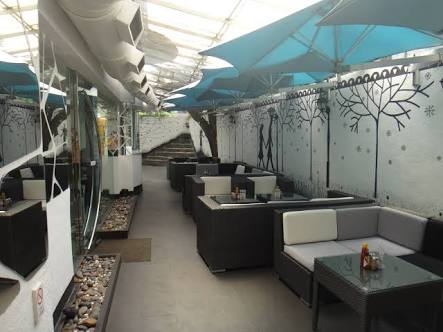 Just a quick note about today before I hit the sack. The morning we spent writing emails and figuring out our technology. We had a lovely lunch at Just Around the Corner (which by the way has lovely shots of the Himalayas in the bathroom). We were meeting up with another Woodstock classmate, Dorothy B., who is working in Mumbai. Her parents and my parents worked together in Ludhiana in '69. We will meet again on Tuesday, so I will catch a shot of her then. Then after a quick nap we went on a walk on the Prominade on a lovely Sunday evening. Facinating watching young families, lovers, elderly, dog walkers, strollers, loungers and joggers out and about.
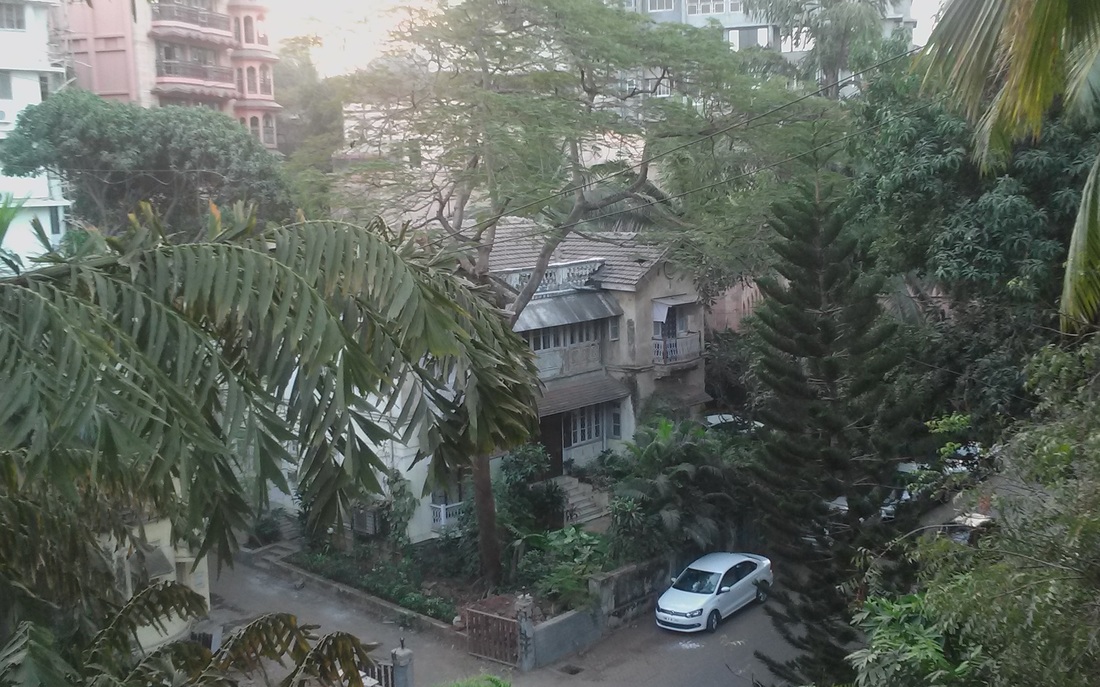 We arrived at the lovely apartment we are staying at around 3:45 in the morning. By the time we had showered and settled into sleep the chorus of crows started waking the city. We slept through the increasing crescendo of city noises: scooter rickshaws, dogs barking, multiple bird sounds, and the flip flop of pedestrians walking by. Today a lovely flute off in the distance serenaded our breakfast. A bagpipe accompanying a wedding horse just passed by the street below. We managed to get out and about town on the first day. Our first visit the Khadi (cotton handmade cloth) Emporium. Then we just drove around the city in a cab.
Still trying to figure out how to work with technology. So please excuse the periodical weird errors on this blog. |
Mary GirardI will be traveling and visiting India, with my Father. Our primary destination in India is Ranchi, Jharkhand. We will also visit other towns and cities in that north-eastern region as well as other places in India. Archives
May 2016
Categories |
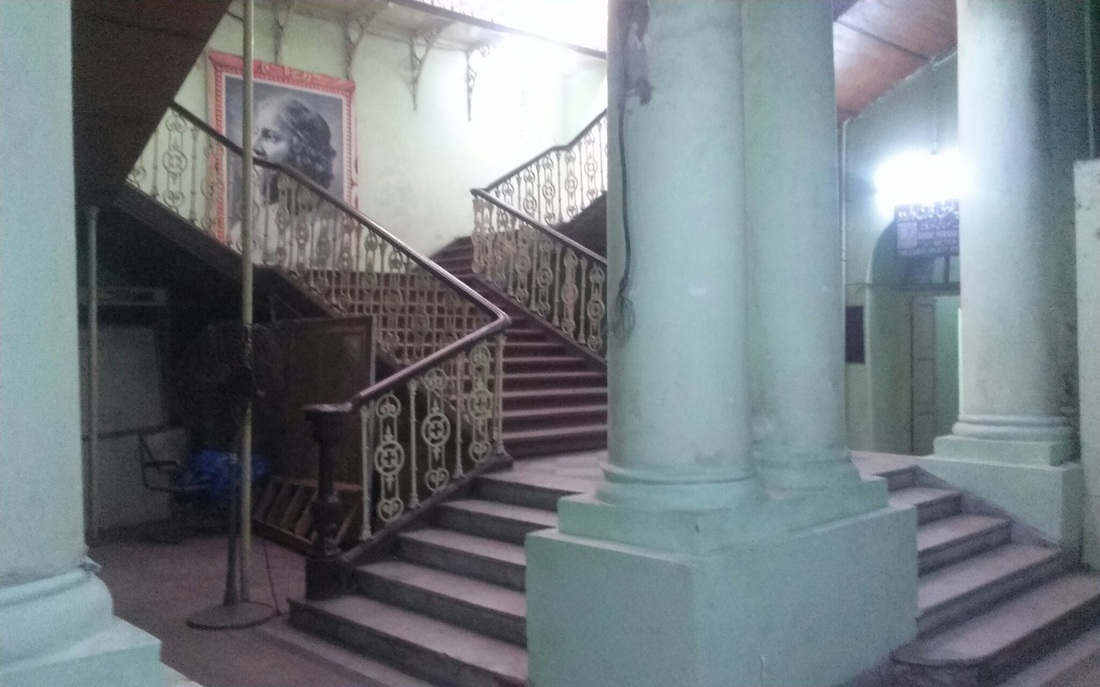
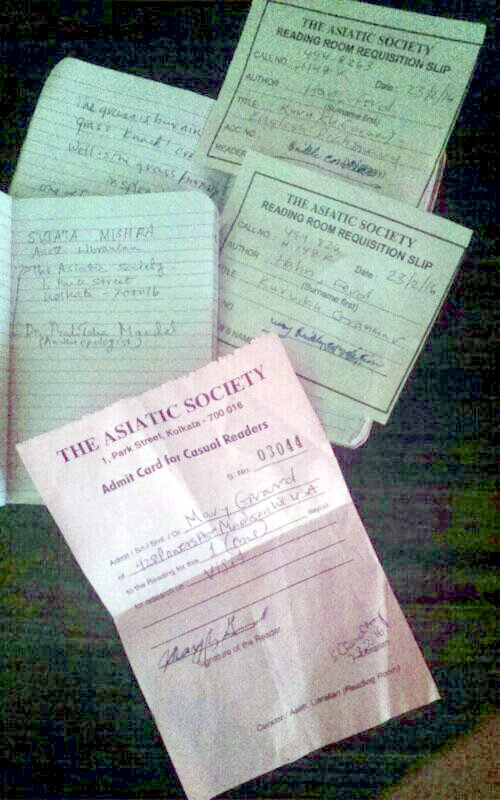
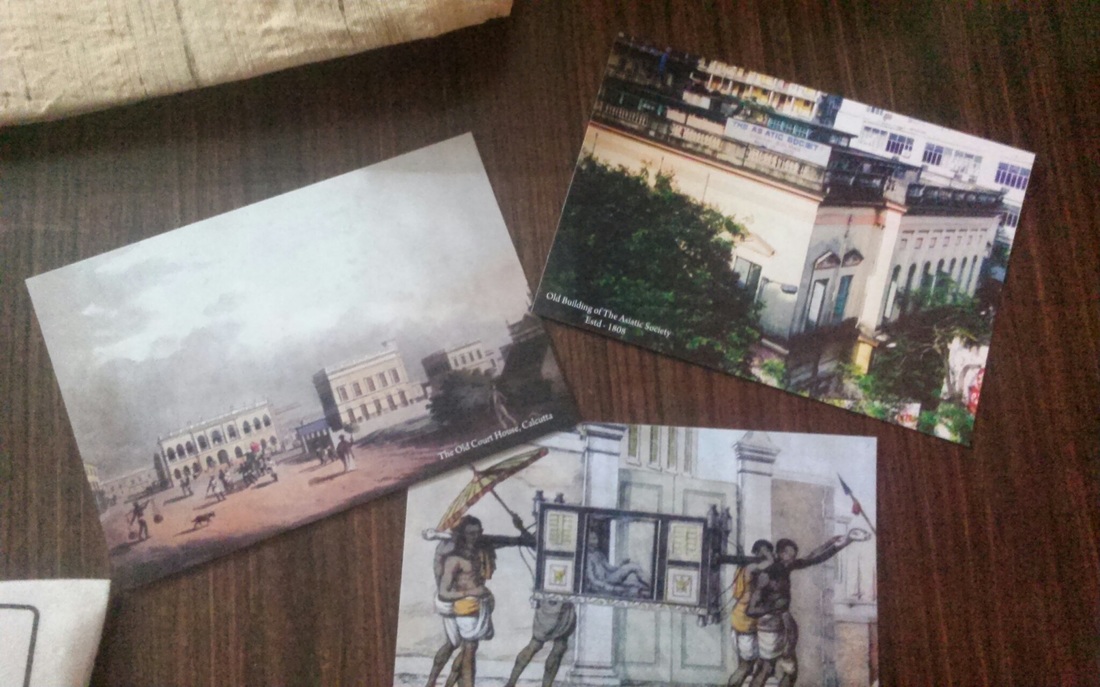
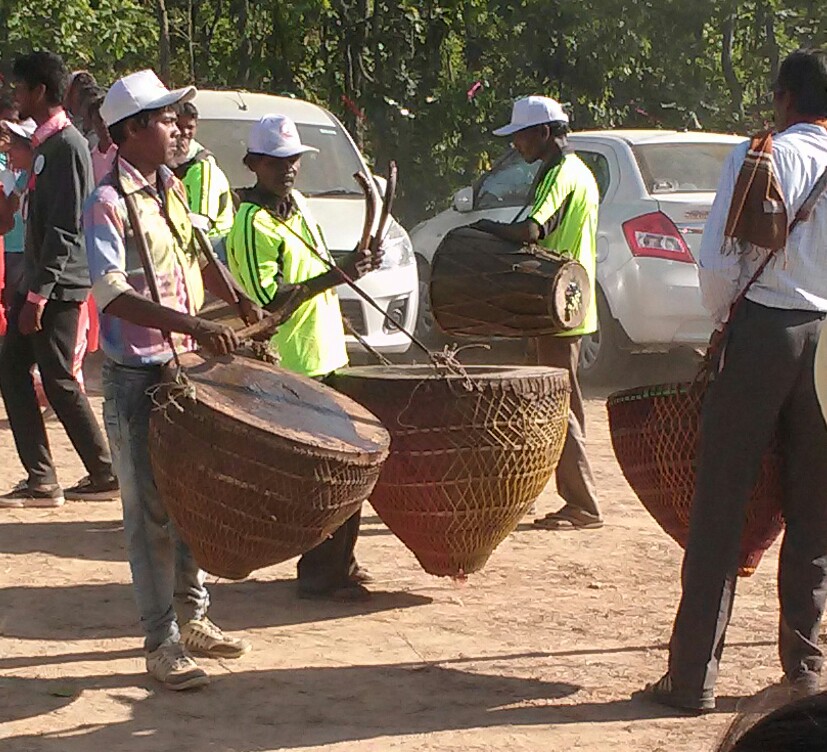
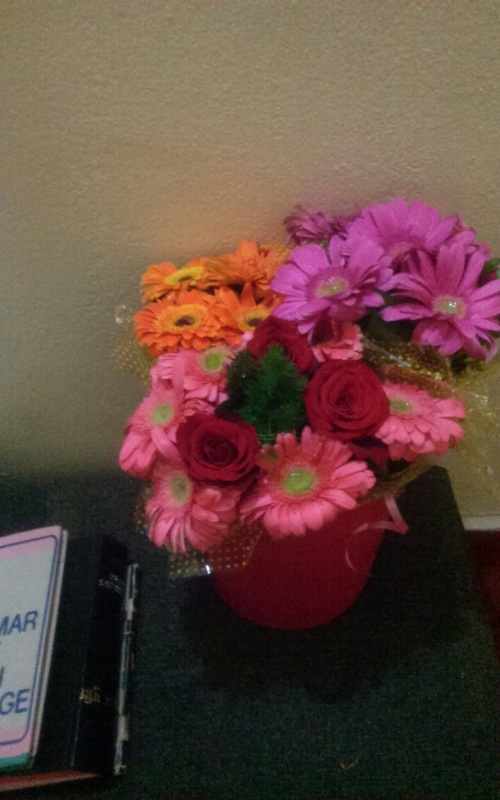
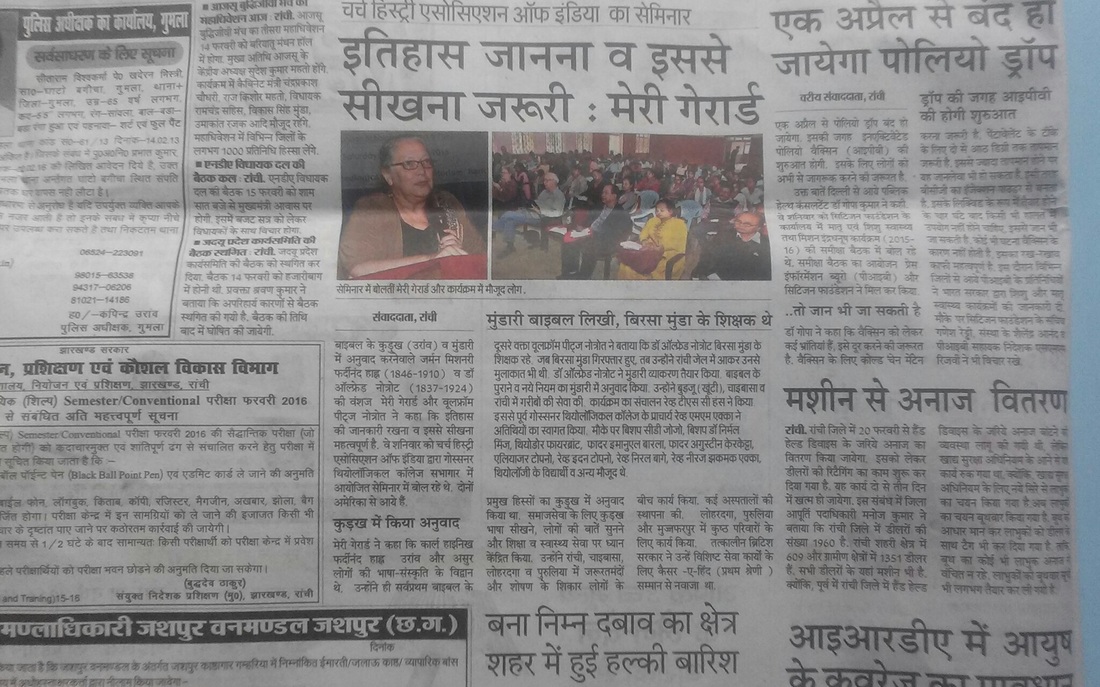
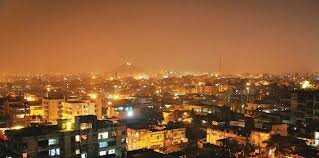
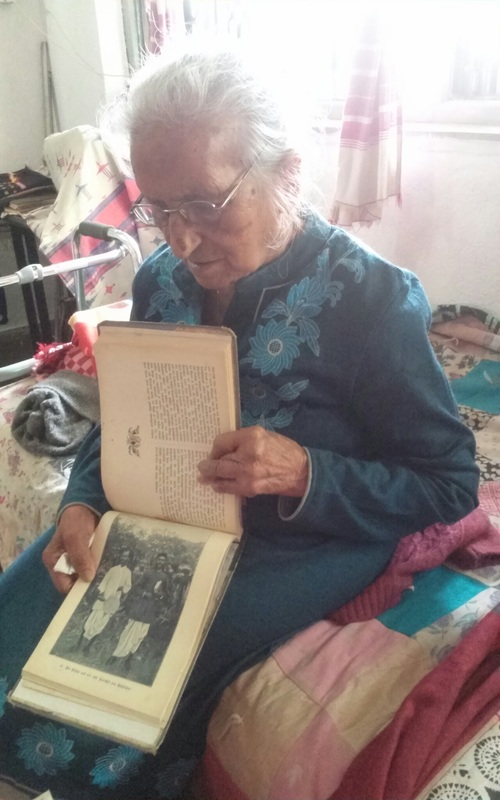
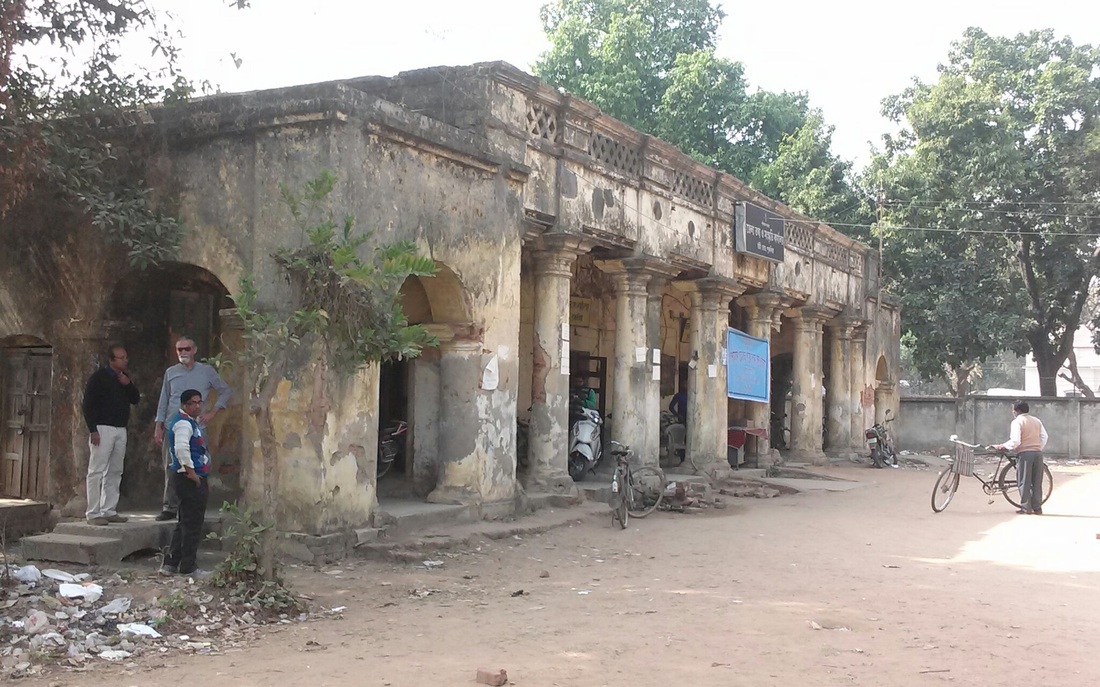
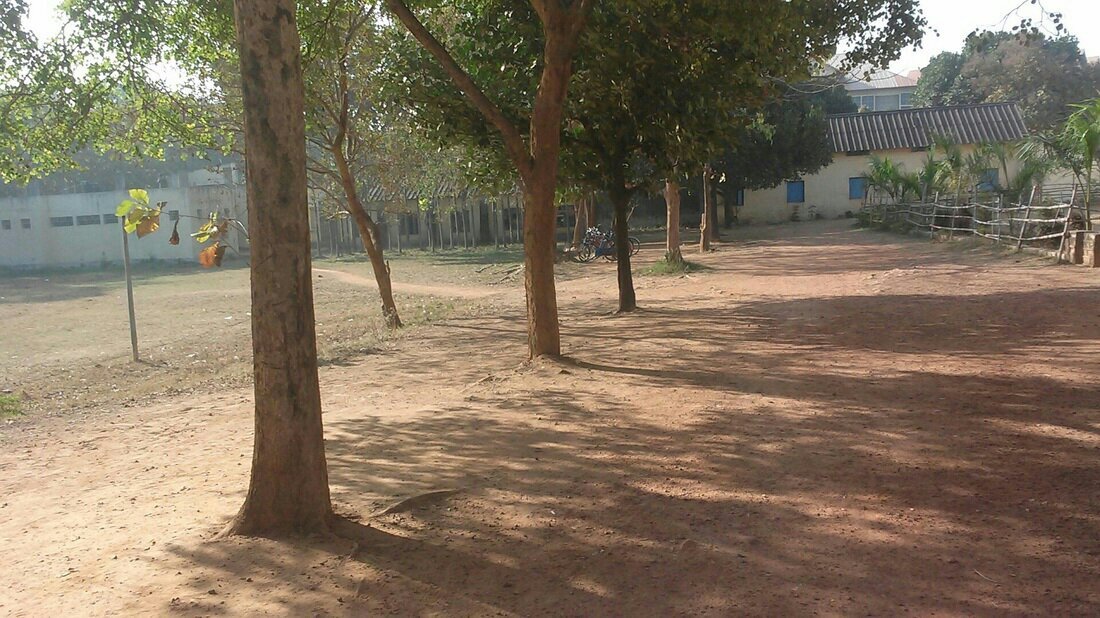
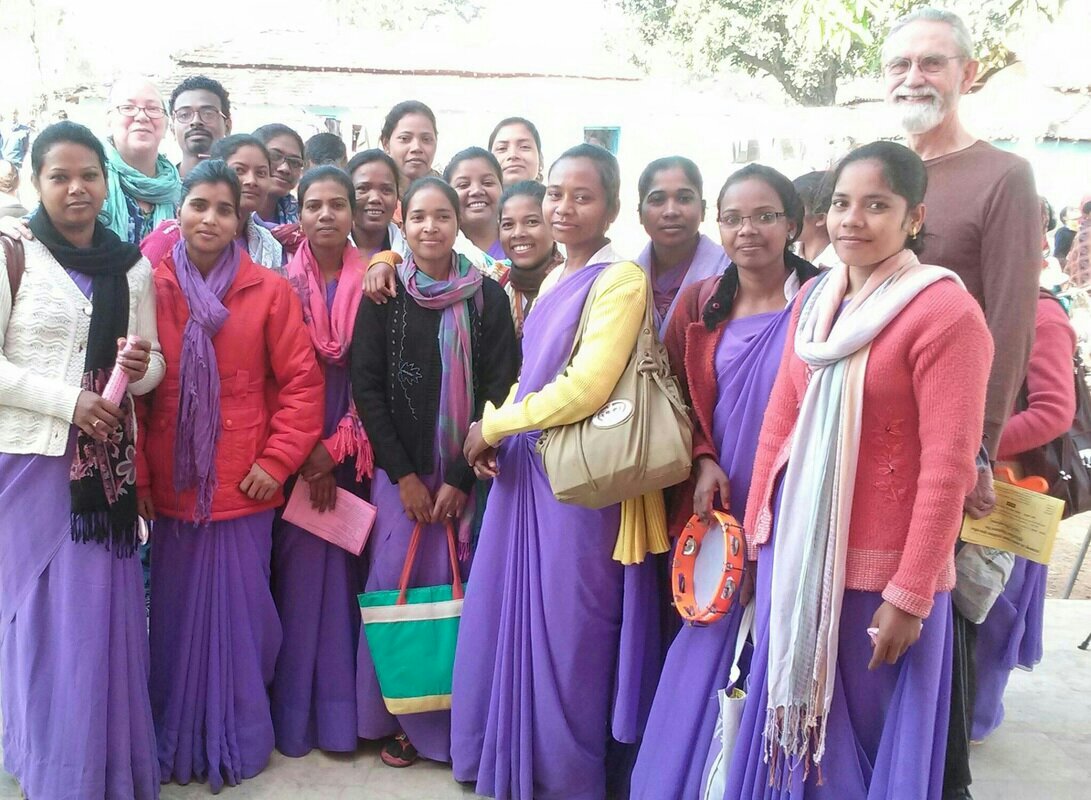
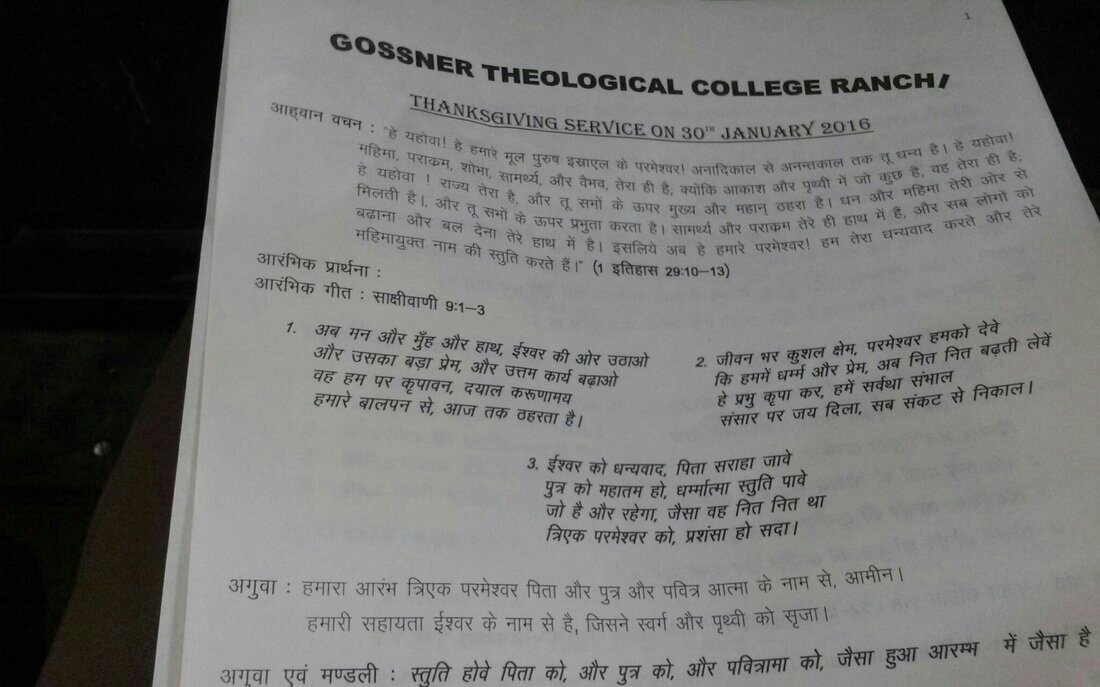
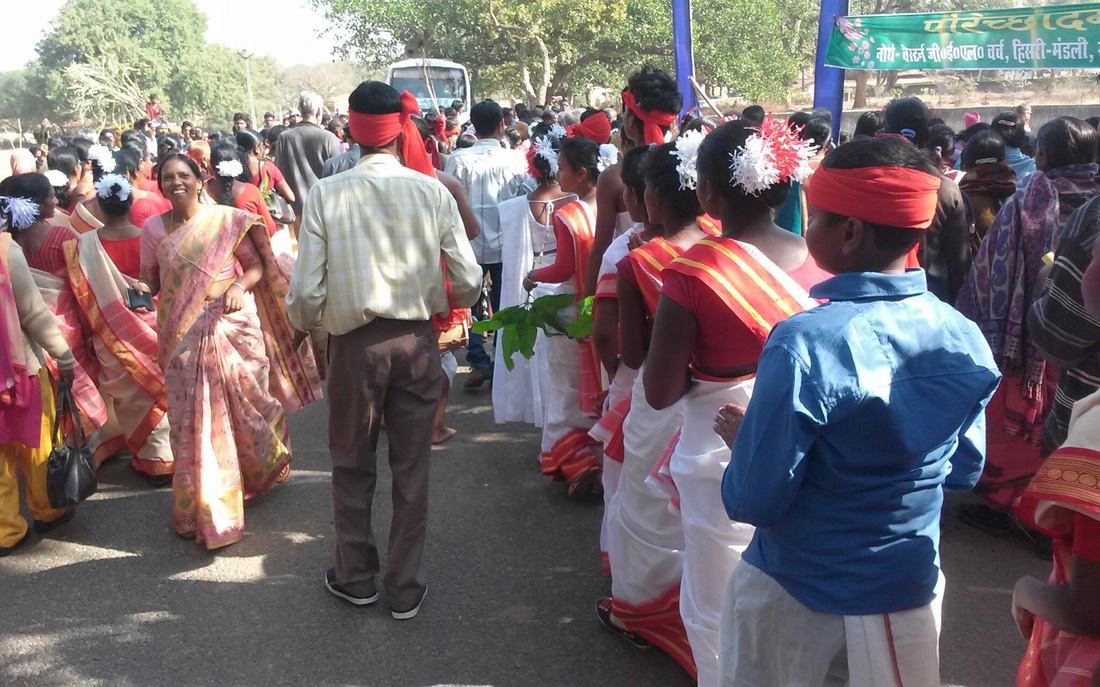
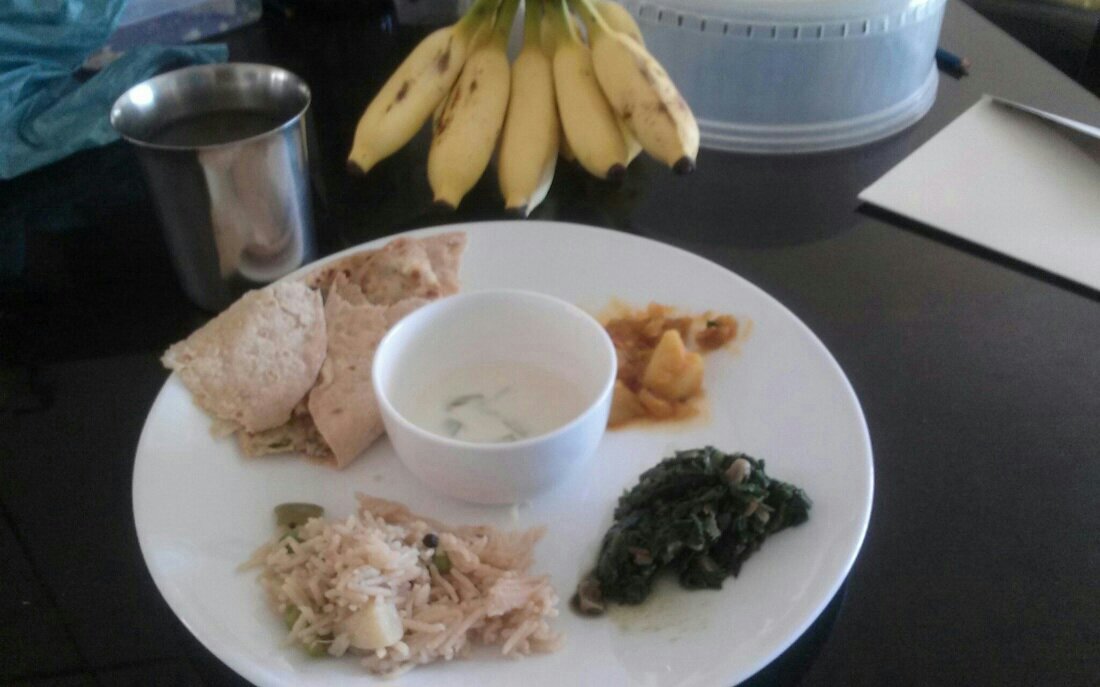
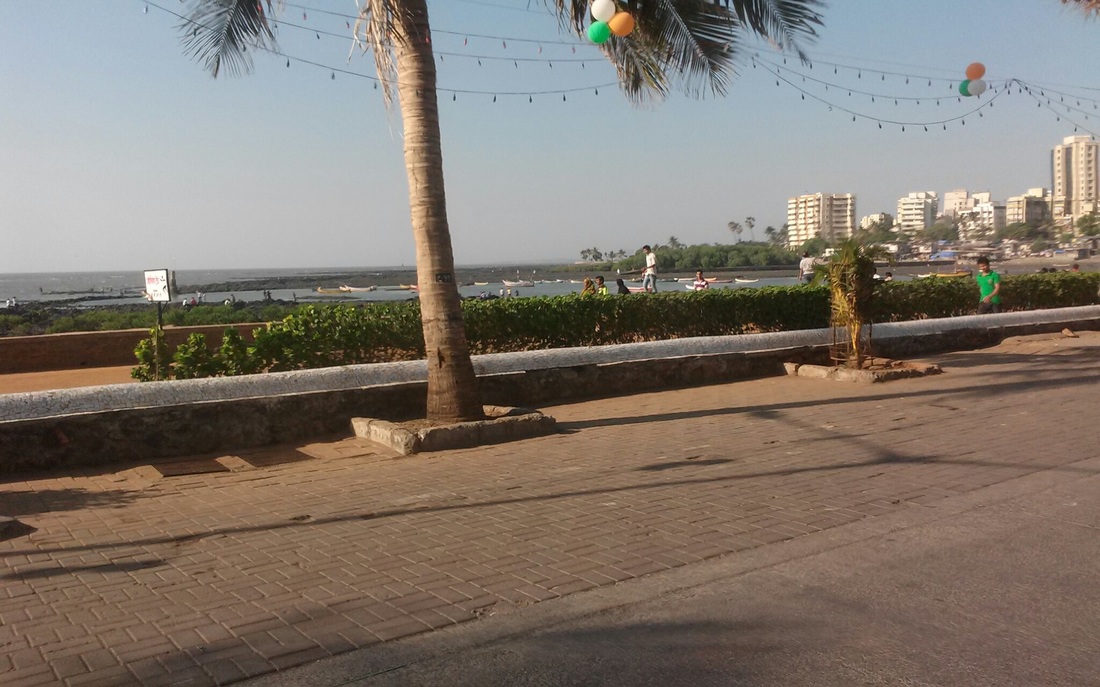
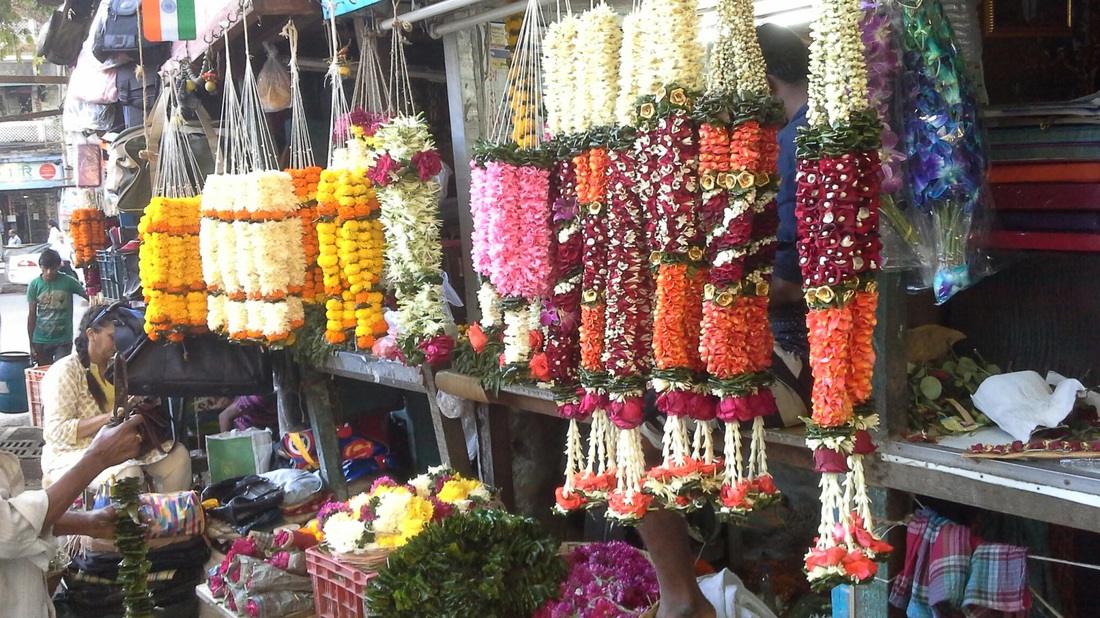
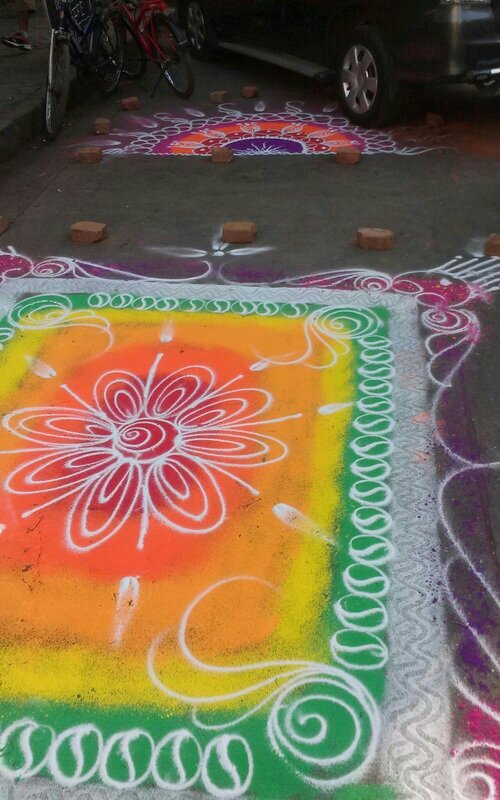
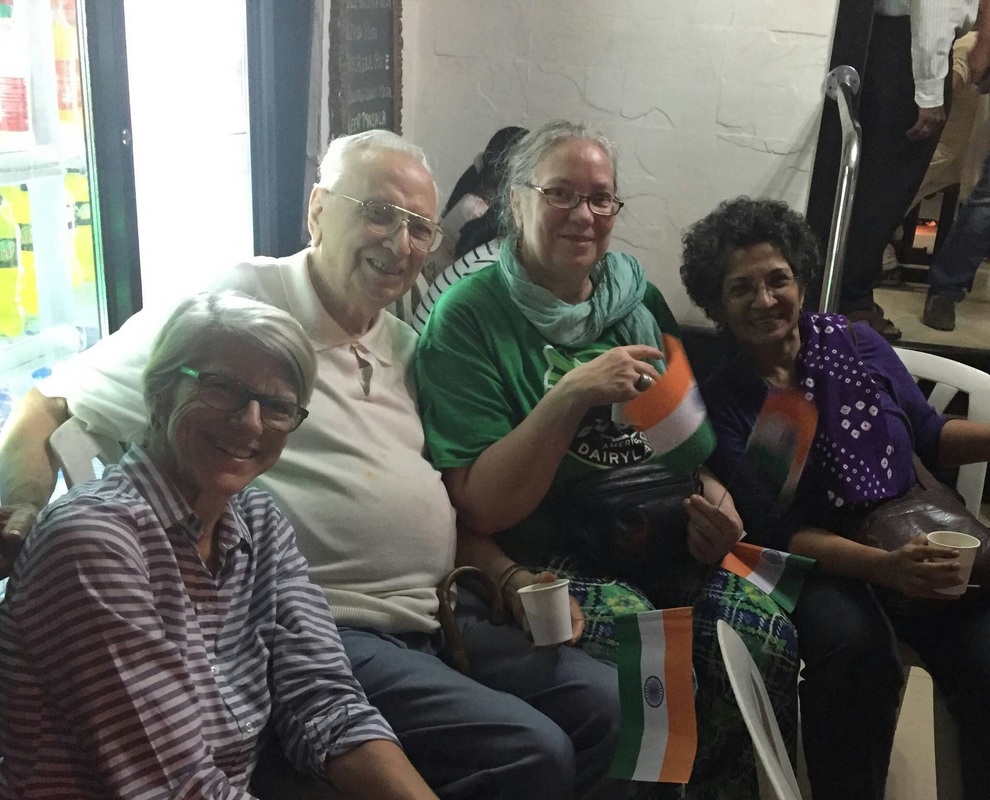
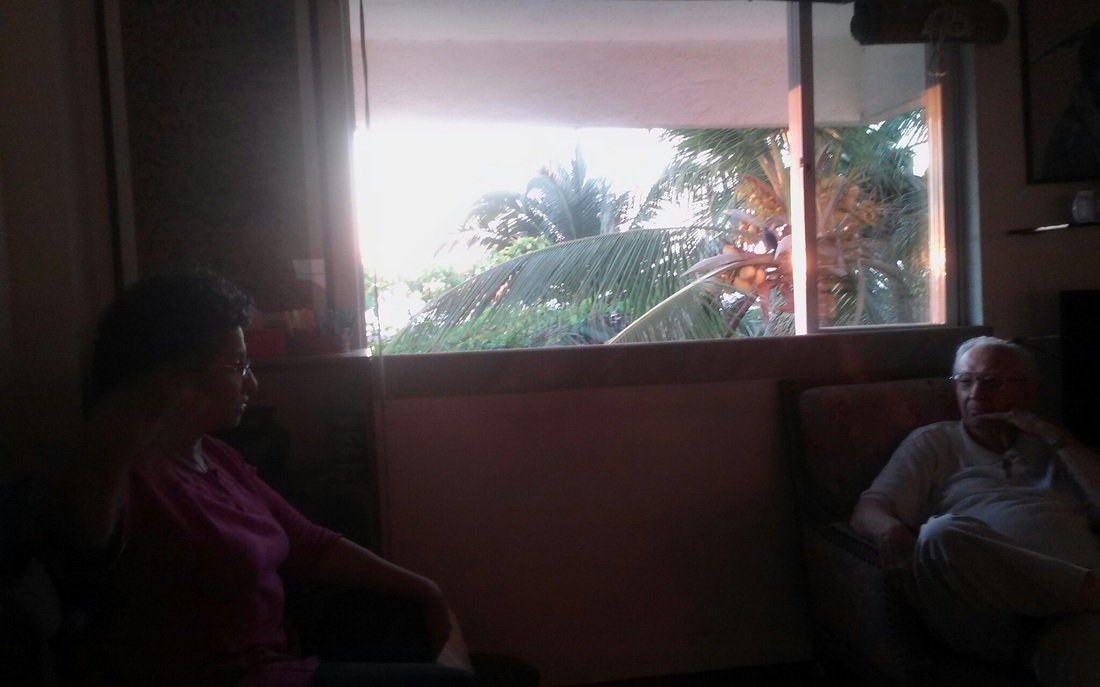
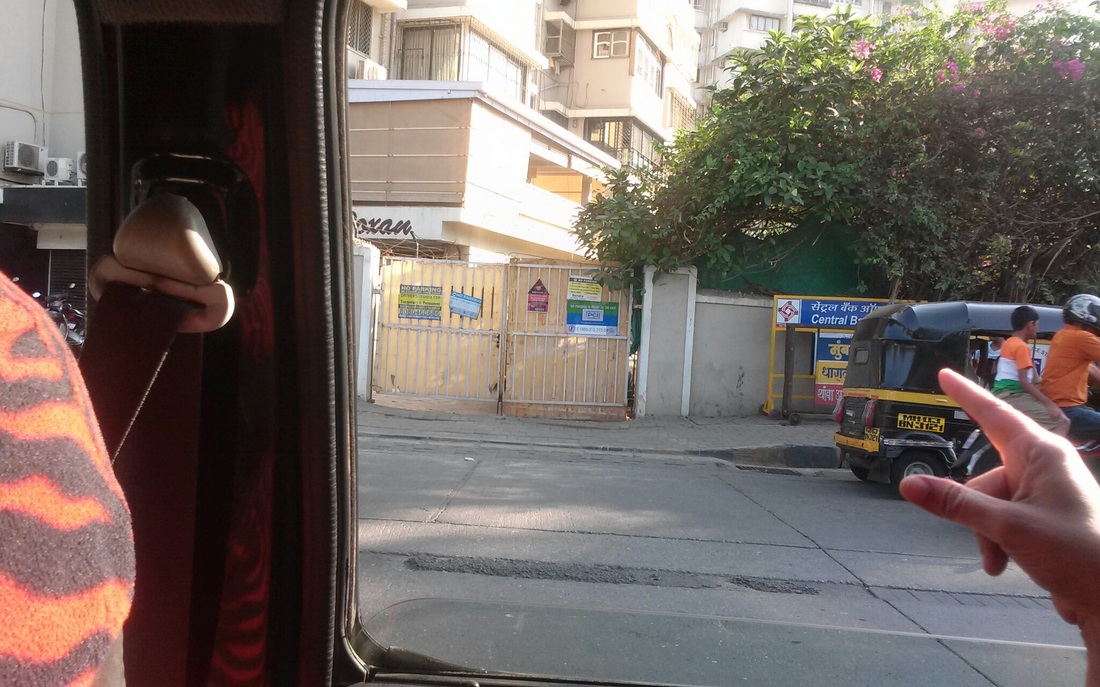
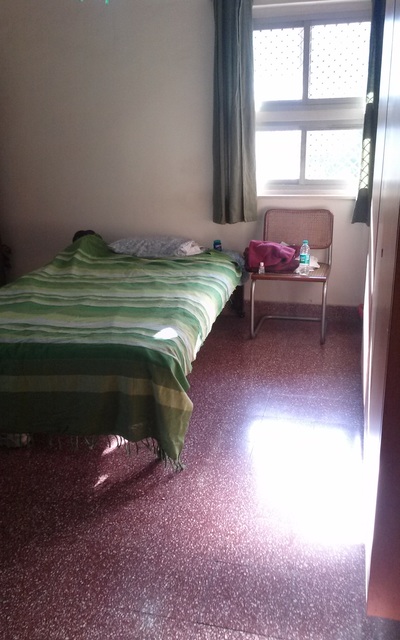

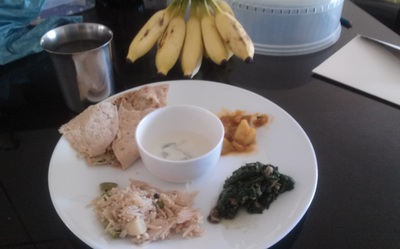
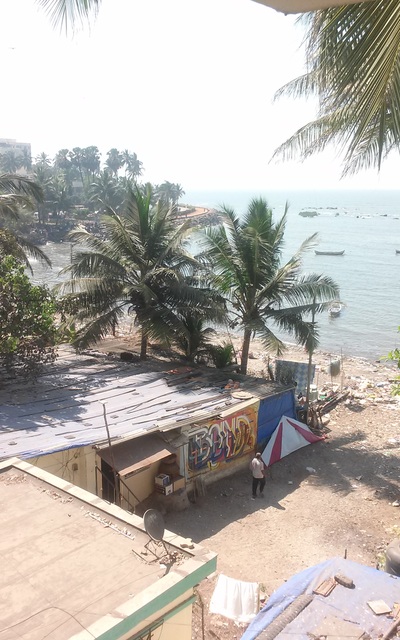
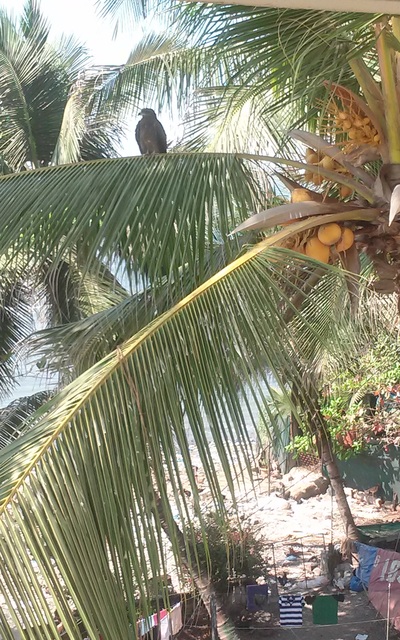
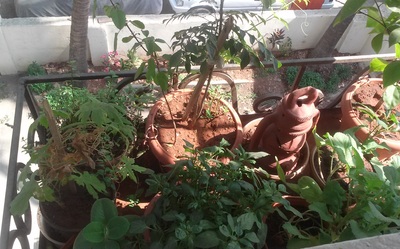
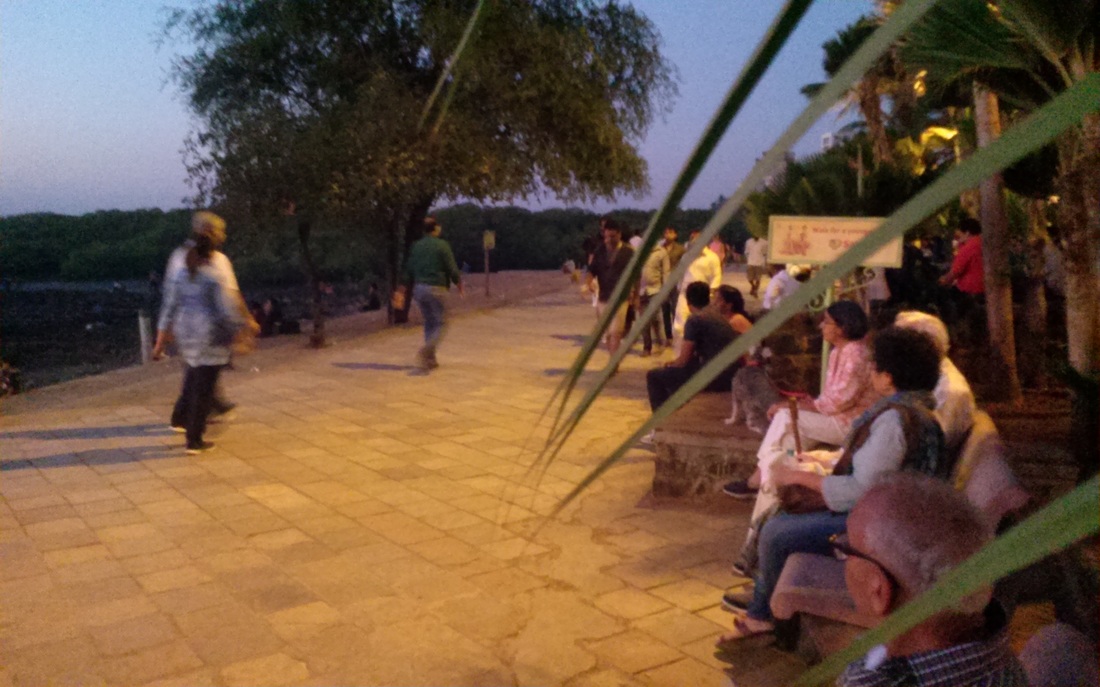
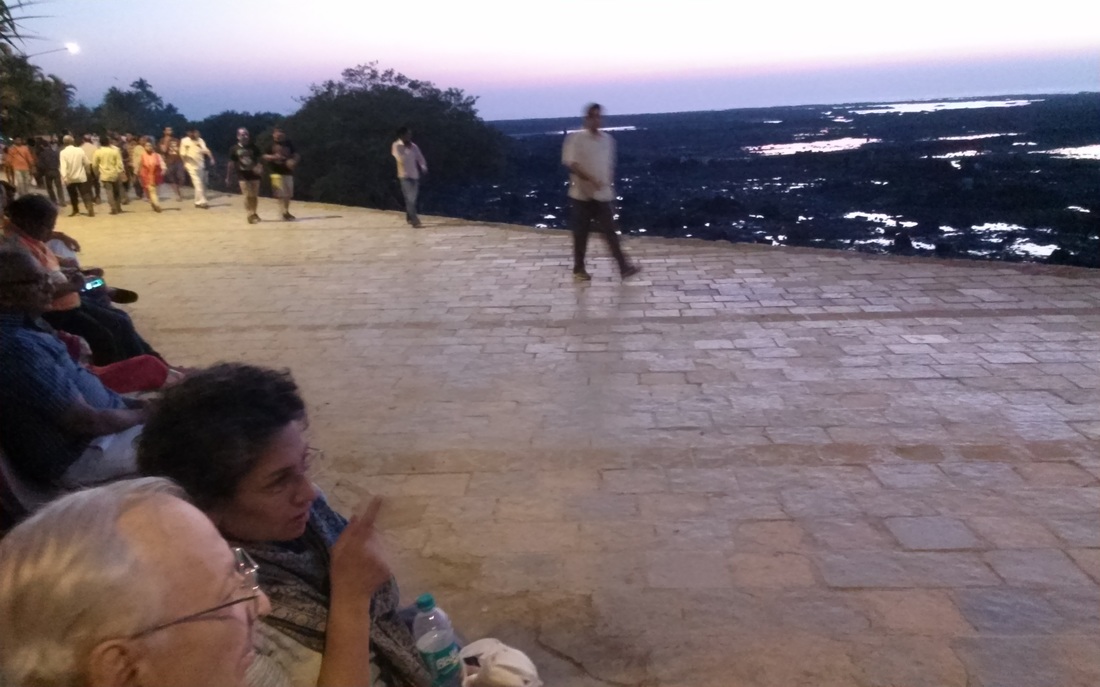
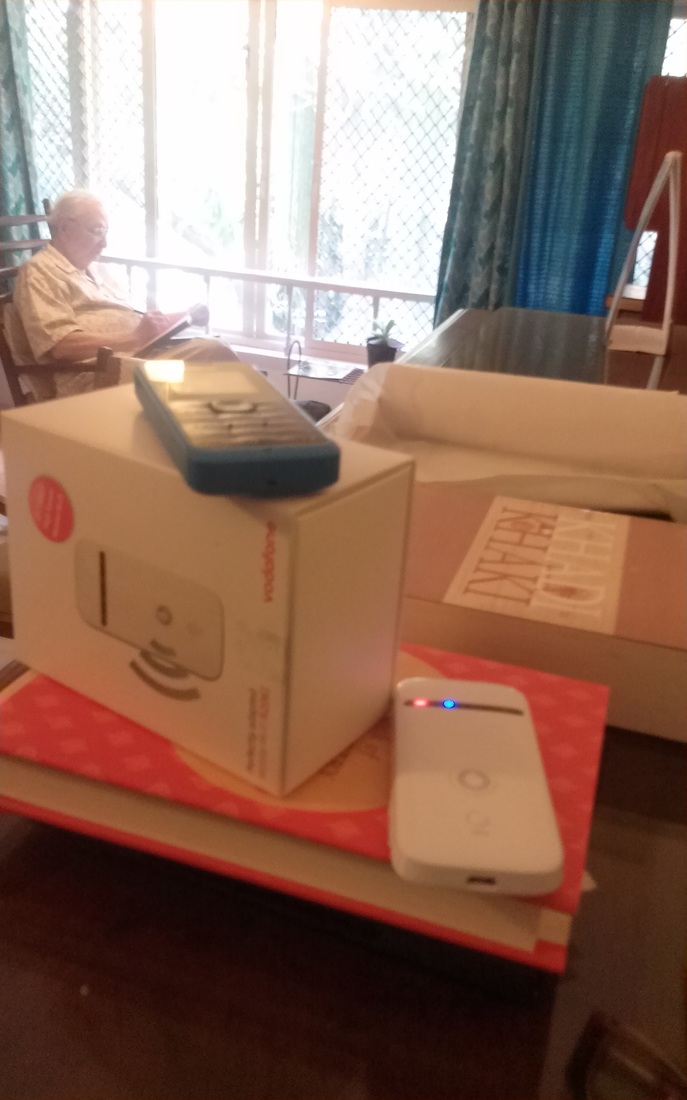
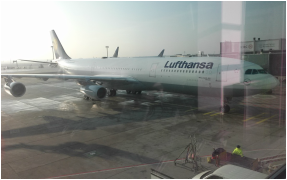
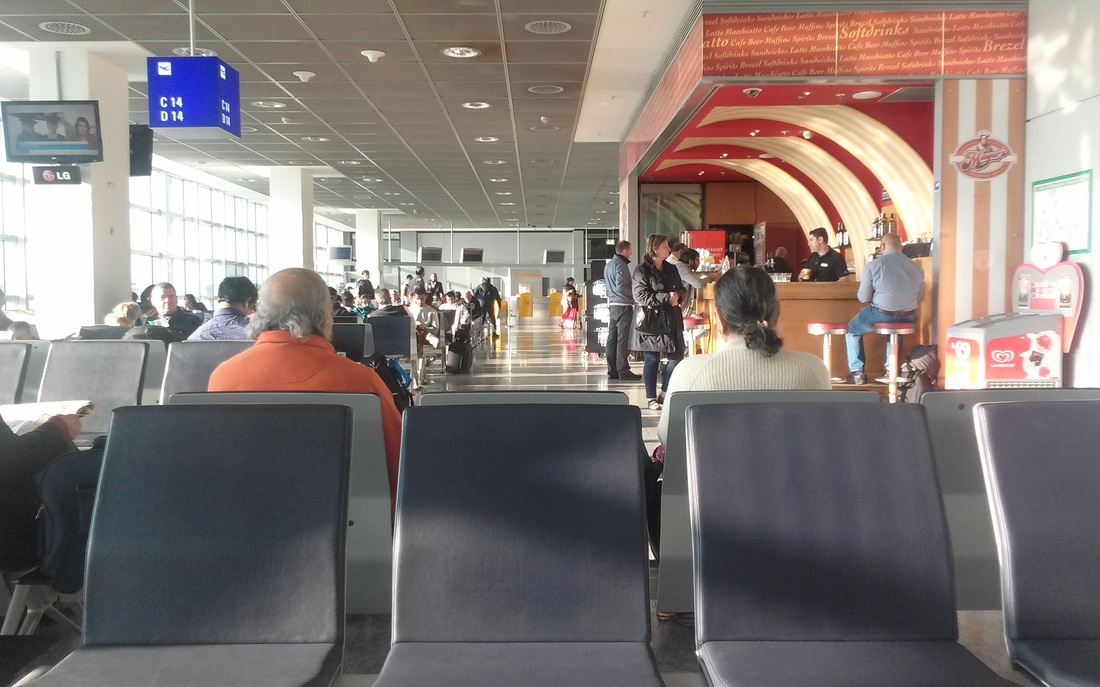
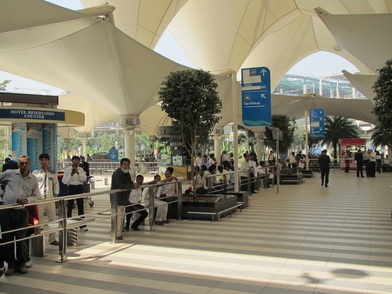
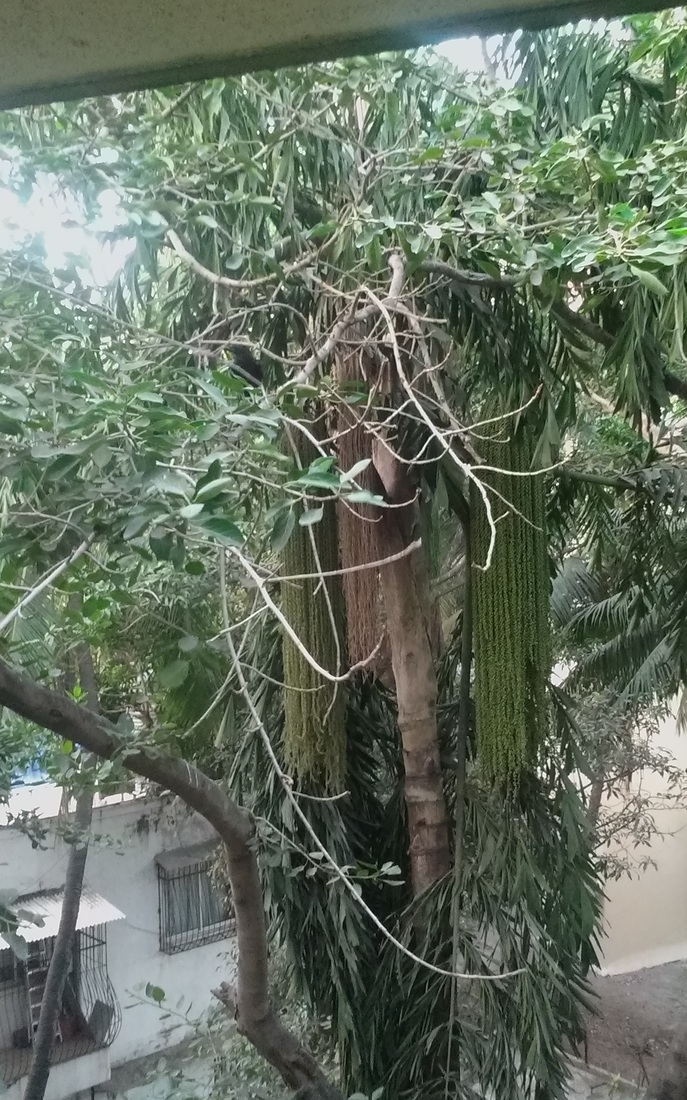
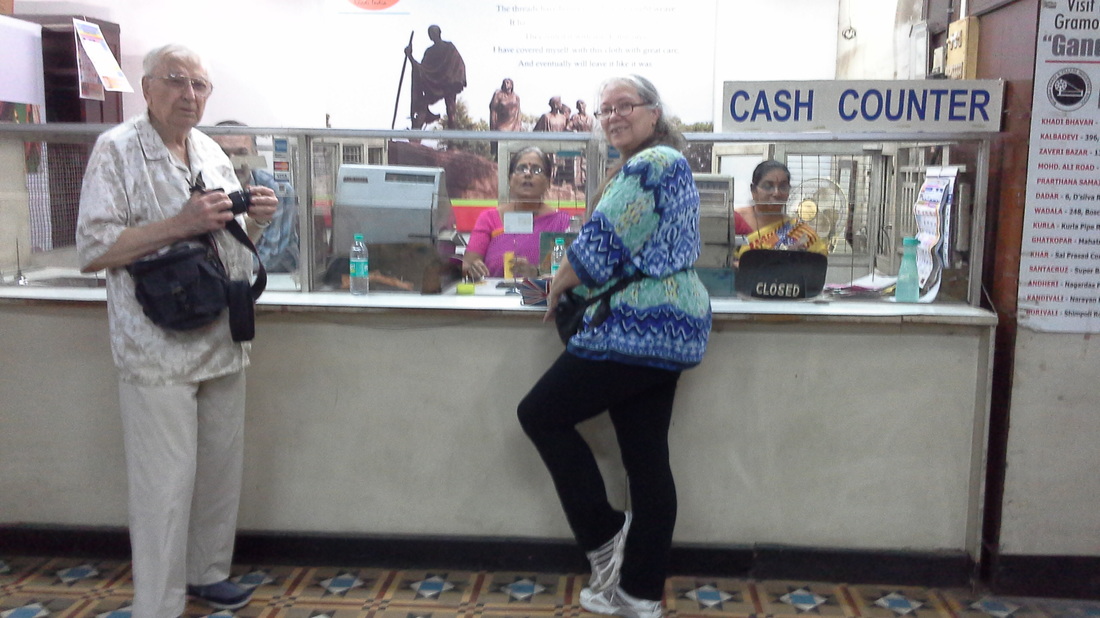
 RSS Feed
RSS Feed